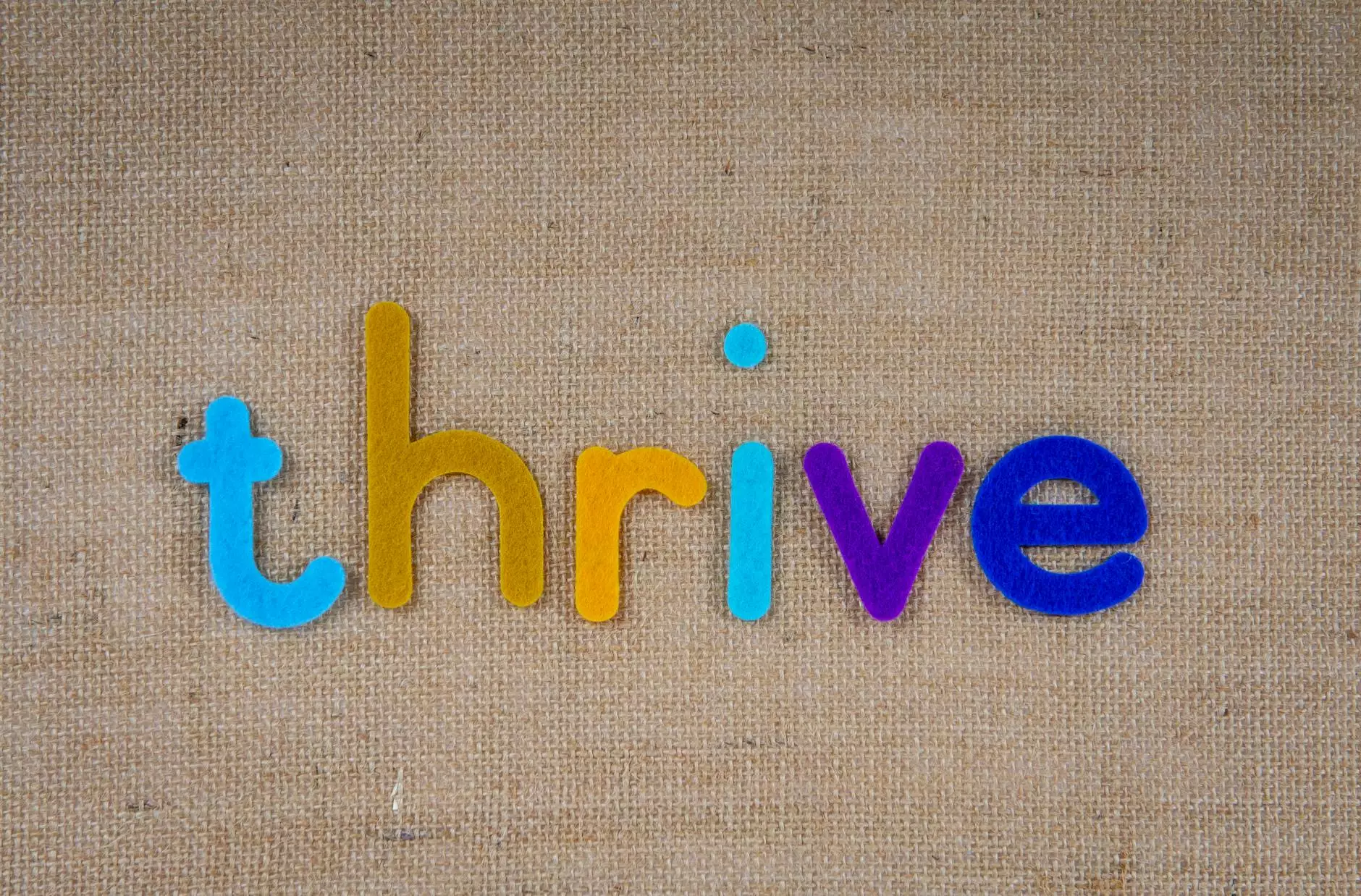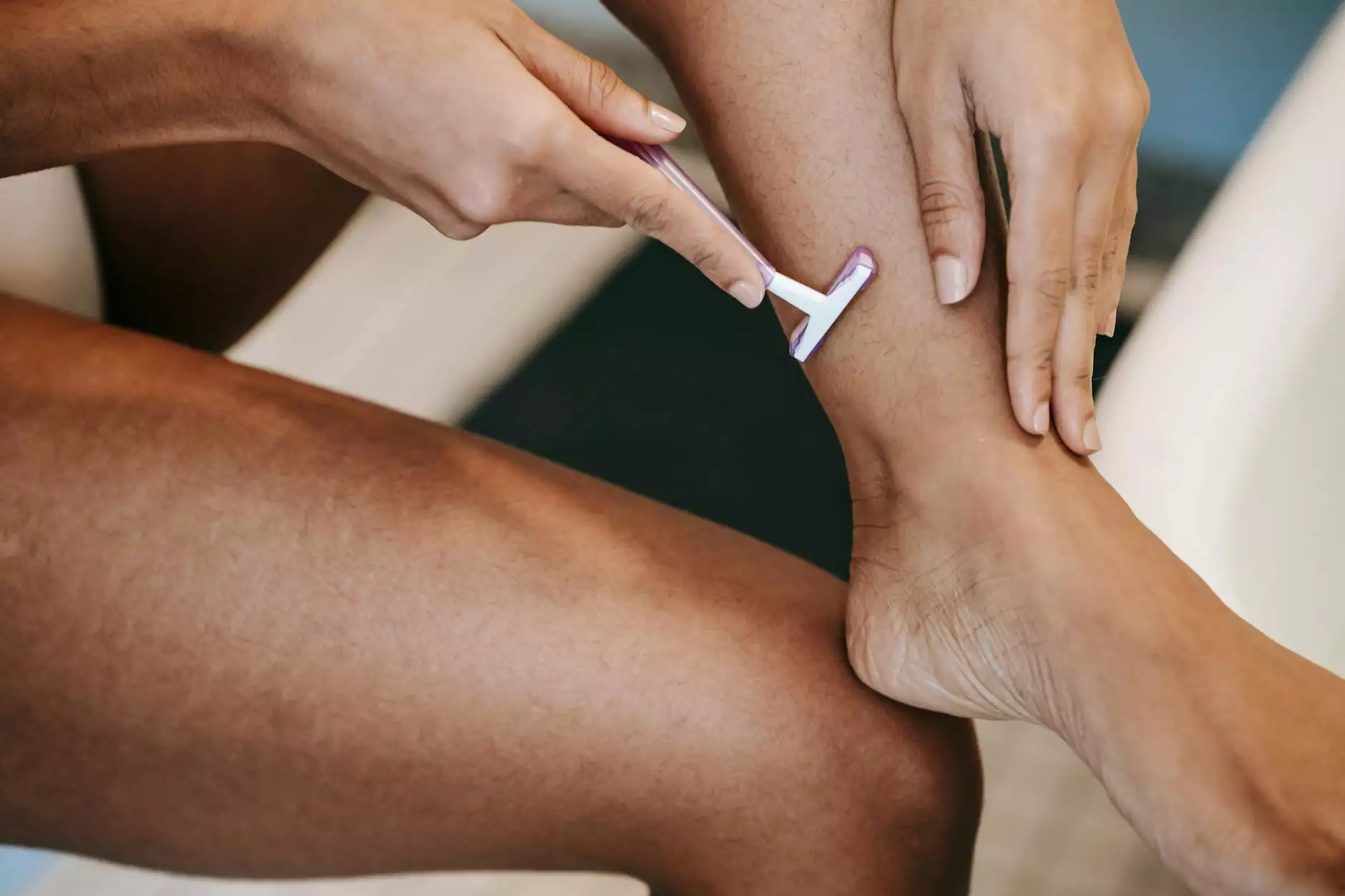Eating For Muscle Recovery And Growth
Nutrition
Introduction
Welcome to Thrive Fitness, where we believe that proper nutrition is key to achieving your fitness goals. In this comprehensive guide, we will explore how to optimize your diet for muscle recovery and growth with insights from Mark Cullars, a renowned expert in the field.
The Importance of Nutrition
Proper nutrition is vital for anyone looking to maximize their fitness results. Whether you're an athlete, bodybuilder, or simply someone striving to improve their overall health, understanding how to fuel your body correctly is paramount.
When it comes to muscle recovery and growth, nutrition plays a crucial role. Without proper nutrients, your body will struggle to repair muscle tissue and build new muscle fibers, hindering your progress and potentially leading to fatigue and injury.
Key Macronutrients
There are three macronutrients that are essential for muscle recovery and growth: protein, carbohydrates, and fats.
Protein
Protein is often referred to as the building block of muscle. It is responsible for repairing and rebuilding damaged muscle tissue after intense workouts. Aim to include high-quality protein sources such as lean meats, poultry, fish, eggs, tofu, and legumes in your diet. Supplementing with protein shakes can also be beneficial, especially immediately after a workout.
Carbohydrates
Carbohydrates provide the energy required for intense workouts and replenish glycogen stores in muscles. Opt for complex carbohydrates such as whole grains, fruits, and vegetables, as they offer a more sustained release of energy compared to simple sugars. Prioritize consuming carbohydrates both before and after your workouts to support muscle recovery.
Fats
While often misunderstood, healthy fats are essential for overall health and optimizing hormone production. Include sources of unsaturated fats like avocados, nuts, and olive oil in your diet. These fats play a vital role in reducing inflammation, supporting joint health, and maintaining hormonal balance, all of which are important for muscle recovery and growth.
Optimal Meal Timing
The timing of your meals is crucial for maximizing muscle recovery and growth. Consider the following meal timing guidelines:
Pre-Workout
Consume a balanced meal containing carbohydrates, protein, and a small amount of healthy fats approximately 2-3 hours before your workout. This meal will provide your body with adequate fuel to perform at its best.
Post-Workout
Within 30 minutes of completing your workout, consume a post-workout meal or shake rich in protein and carbohydrates. This will kickstart the recovery process and replenish glycogen stores in your muscles.
Throughout the Day
Ensure you're consuming smaller, balanced meals every 3-4 hours throughout the day. This eating pattern will provide a constant supply of nutrients to support muscle recovery and growth.
Hydration
Proper hydration is often overlooked but is crucial for overall health and muscle recovery. Water plays a vital role in transporting nutrients to your muscles and removing waste products. Aim to drink at least 8 glasses of water per day, and increase this amount during intense workouts or hot weather.
The Role of Supplements
While a well-rounded diet should be your primary focus, certain supplements can also support muscle recovery and growth.
Whey Protein
Whey protein supplements are a convenient way to increase your protein intake, particularly if you struggle to consume enough through whole foods alone. Look for high-quality whey protein powders that are low in additives and sugars.
Creatine
Creatine is a naturally occurring compound that helps to regenerate adenosine triphosphate (ATP), the primary energy source for muscle contractions. Supplementing with creatine has been shown to improve muscle strength and increase muscle mass over time.
Omega-3 Fatty Acids
Omega-3 fatty acids have anti-inflammatory properties and can support overall health and recovery. Consider including fish oil or flaxseed oil supplements in your routine, as they are rich sources of omega-3 fatty acids.
Conclusion
Optimizing your diet for muscle recovery and growth is a journey that requires dedication and knowledge. By understanding the importance of macronutrients, meal timing, hydration, and potentially incorporating supplements, you can provide your body with the necessary tools to thrive.
Remember, every person's nutritional needs may vary, and it's always recommended to consult with a fitness professional or nutritionist for personalized guidance. At Mark Cullars, we are here to support you on your fitness journey, providing expert advice and resources to help you reach your goals.
Empower yourself with knowledge, make informed choices, and achieve the best results for your body and mind. Start your journey with Thrive Fitness today!










